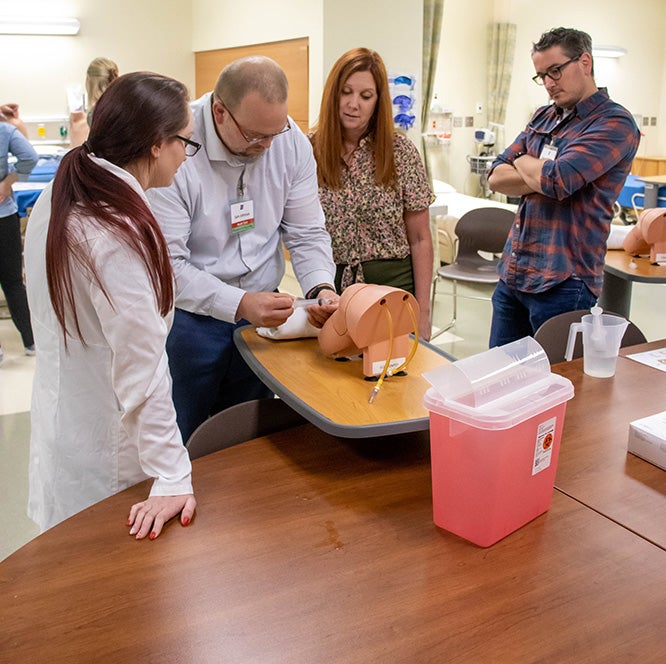The College of Health Sciences’ School of Nursing recently launched additional Doctor of Nursing Practice degree tracks as part of their graduate education offerings. The school adapted its graduate program offerings to give students more flexibility and more options – such as the highly-demanded Family Nurse Practitioner specialty.
Nurses can apply whether they hold a bachelor’s or master’s degree, and they can choose to study full or part-time starting in the fall or spring semesters. Upon graduation, they will be prepared to take their nurse practitioner certification exam; Boise State currently boasts a 99% pass rate on the first attempt.

The new tracks are designed to save students time and money. Full-time bachelor’s-prepared students can earn their doctorate in as few as three years. For nurses who already hold an advanced practice degree – like nurse practitioners, anesthetists or midwives – there is also a new post-master’s track to their doctorate.
“In June 2022, the National Organization of Nurse Practitioner Faculties released revised core competencies for nurse practitioner programs, which are specific to preparing students at the doctoral level,” said Amy Spurlock, chief nurse administrator at the School of Nursing. “Achieving these competencies means graduates remain competitive in the job market as well as prepared to meet the health needs of their patients.”
These new tracks are also part of Boise State’s response to the growing healthcare provider shortage. While a common problem across the nation, it’s particularly concerning for a rural state like Idaho. Nurse practitioners are part of the solution, so Boise State’s tracks streamline the educational process and allow highly-skilled practitioners to enter the field quickly.

“Boise State is answering the governor’s call to increase Idahoan’s access to primary care,” said Nicole Loos-Bartlett, current director of the Adult Gerontology Nurse Practitioner program. “The implementation of the FNP track will help to ensure Idahoans have greater access to primary and specialized care. Graduates of Boise State’s nurse practitioner programs will be doctorally prepared and enabled to deliver high-quality and competent healthcare, which the community has often associated with Boise State alumni.”
Courses in the new tracks will be delivered primarily online with two on-campus intensive sessions. In addition to top-tier clinical skills, the curriculum emphasizes innovation and transformation through evidence-based practices in any sphere of nursing.
Apply now and join the first cohort beginning fall 2024; priority applications are due July 1. For more information, visit the school’s website.